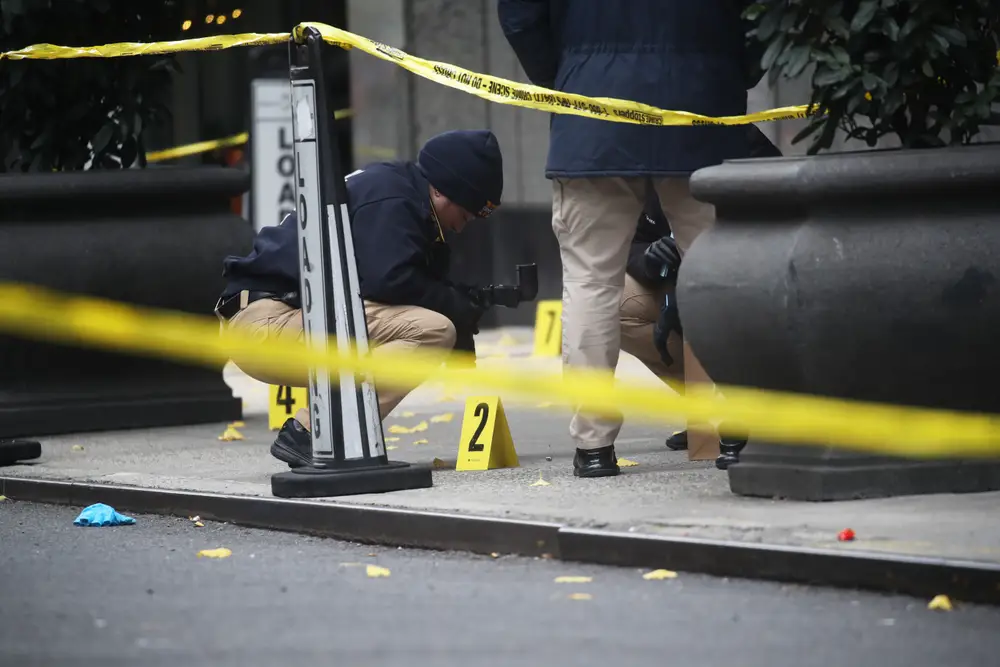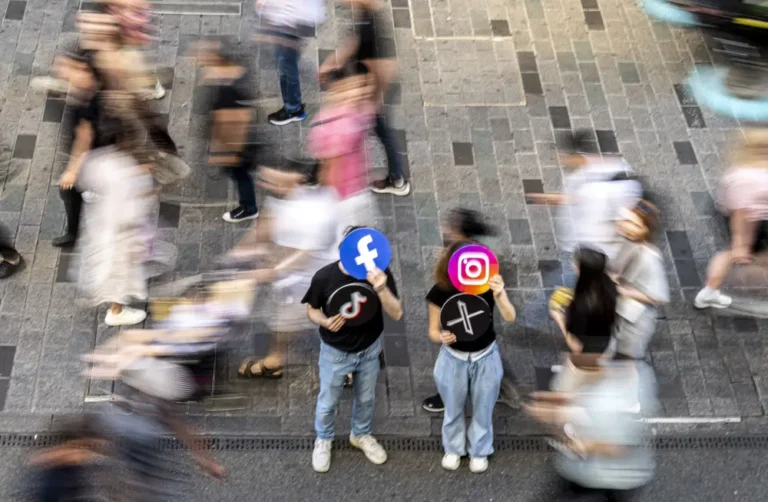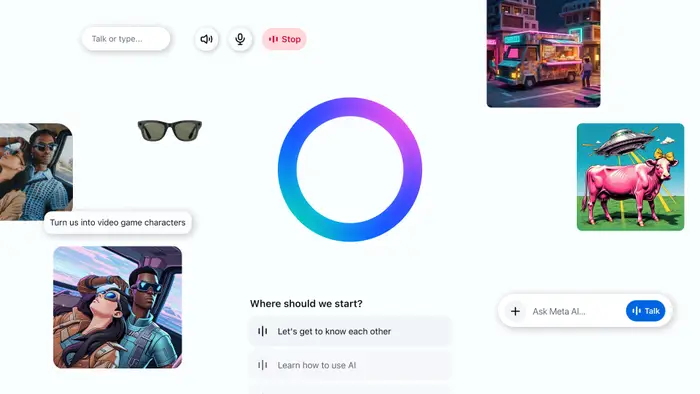Executive security gets a closer look after UnitedHealthcare CEO’s fatal shooting

Police inspect the scene where insurance executive Brian Thompson was killed in Manhattan.
Following the fatal shooting of United Healthcare CEO Brian Thompson this week, some high-level executives are ramping up their own security.
The host of a series of national and international executive leadership summits told B-17 that a surge of corporate leaders has been reaching out to him this week to inquire about security at the events.
Jeffrey Sonnenfeld — a professor and senior associate dean for Leadership Studies at Yale who also heads Yale’s Chief Executive Leadership Institute — has been hosting summits for top company executives for decades.
He said that over the last few years the institute has significantly increased the security it provides executives at its events in the US. But things have shifted this week ahead of the institute’s coming CEO Summit in Manhattan in December.
“What’s really different for us, this coming one, is so many people inquiring to make sure we have it” Sonnenfeld said, in reference to event security. “We never used to get inquiries about it.”
Sonnenfeld said the institute had increased security at its events long before Thompson’s fatal shooting because company leaders have increasingly faced threats and general hostility from the public.
“Sadly, CEOs have been made into foils or scapegoats for the far-left and the far-right,” he said, “so that the political grandstanding has looked to make excuses for whatever unhappiness people have.”
This year marks the first time the December CEO Summit will have armed and uniformed NYPD officers all around it, Sonnenfeld said. But, he added, the CEOs are thrilled to get together to compare notes with other CEOs on what they’re doing about security.
Meanwhile, the fatal shooting has led to a surge of interest in beefed-up security for company leaders, people at private security firms said.
Michael Kozhar, the vice president of operations at International Security Services, Inc., of Brooklyn told B-17 that in the past few days, his company has seen a rise in calls from executives and companies looking to upgrade their security.
Still, because the attack on the healthcare executive appears to have been targeted, Kozhar said there hasn’t been a lot of action so far in terms of companies actually engaging in more security services beyond inquiries. “If these incidents become more frequent, the atmosphere surrounding the purchase of security services will change drastically,” he cautioned.
Matthew Dumpert, managing director at Kroll Enterprise Security Risk Management, told CNBC on Thursday, that he’d also received calls.
“We had CEOs and other executive-level and board members reaching out to us all throughout yesterday and today to increase their own executive protection, their own personal security around the clock, 24/7,” he said.
Because executives are the face of an organization, they can receive the brunt of the blame for their customers’ frustrations, Dumpert told the outlet. And for organizations that deal in life and death matters — like health insurance companies — that ire can be even more potent.
Allied Universal, which provides a range of security and protection services to Fortune 500 companies, saw a surge of potential clients reaching out on Wednesday following the attack on Thompson, company leaders told The New York Times.
But it’s not just the events of this week that are giving executives cause for concern.
Targeted attacks — both online and offline — on executives and their families have risen dramatically in the last five years, Chris Pierson, the CEO of digital executive protection agency BlackCloak, told the Times. The firm’s data shows that the most frequently targeted executives work in the health care, biomedical, and pharmaceutical industries, according to the outlet.
In the last few years, companies have been increasing the amount they spend on security for their top executives.
Between 2021 and 2023, the median total value of security benefits provided to named executive officers at S&P 500 companies doubled, according to data shared with B-17 from executive compensation research firm Equilar.
The prevalence of companies offering security benefits also increased modestly — by around 4% over the same timeframe, according to Equilar.
The shooting of Thompson, who didn’t appear to have security protection when he was killed in Midtown Manhattan on Wednesday morning, sparked a dayslong manhunt for the suspect. As of Friday afternoon, the suspect is still at large, though authorities believe he has fled the city.
On Thursday, United Health Group, the parent company of UnitedHealthcare, issued a statement: “Our priorities are, first and foremost, supporting Brian’s family; ensuring the safety of our employees; and working with law enforcement to bring the perpetrator to justice.”






